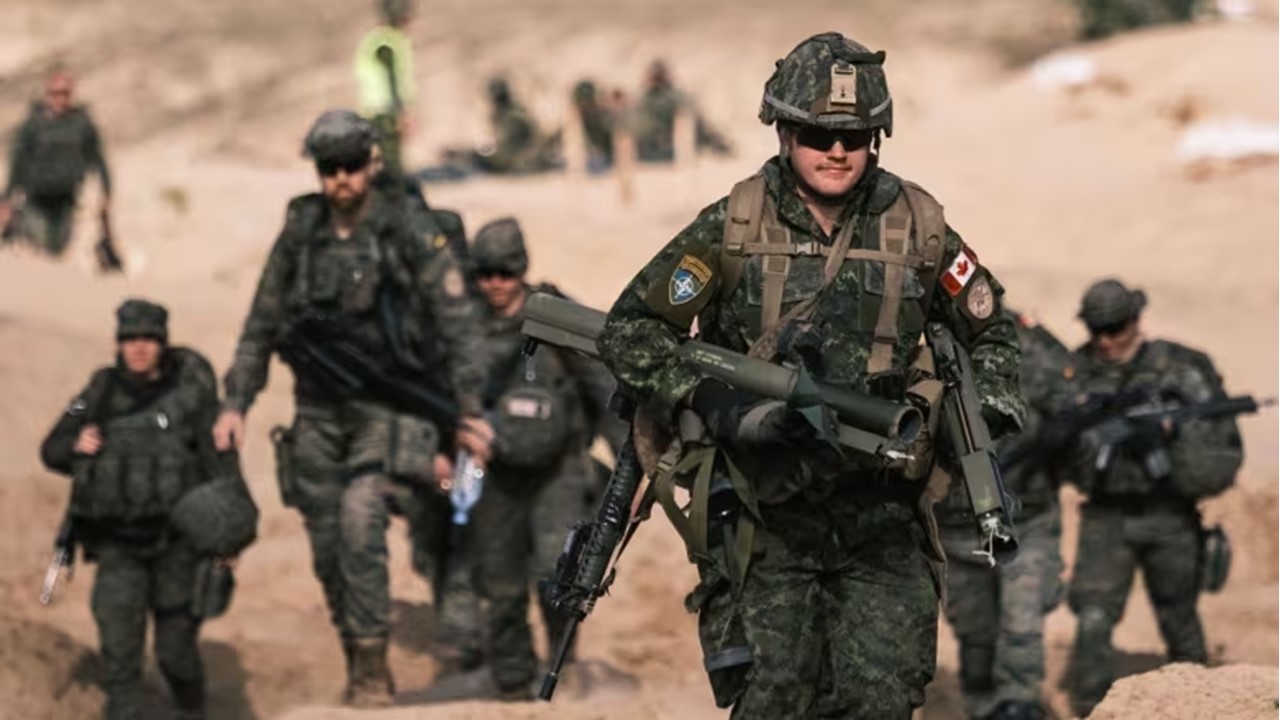Already a subscriber? Make sure to log into your account before viewing this content. You can access your account by hitting the “login” button on the top right corner. Still unable to see the content after signing in? Make sure your card on file is up-to-date.
Canada and the Philippines have officially inked a defense pact that expands security cooperation between both countries, marking the first defensive pact Canada has signed in the Indo-Pacific.
Some shit you should know before you read: For years, China and the Philippines have been locked in a heated territorial dispute over the South China Sea, a strategic waterway rich in resources and crucial for global trade. China claims nearly the entire sea, specifying its claims with the controversial “nine-dash line,” which overlaps with the Philippines’ Exclusive Economic Zone (EEZ) and its claims over areas such as the Spratly Islands and Scarborough Shoal. The Philippines, backed by a 2016 ruling by the Permanent Court of Arbitration in The Hague, argues that China’sexpansive claims have no legal basis, a decision that China refuses to recognize. This has led to numerous confrontations, including boat rammings, the use of water cannons by Chinese vessels to block Filipino fishing boats, and even physical altercations between crews.

What’s going on now: The defense pact signed by Canada and the Philippines (dubbed the Status of Visiting Forces Agreement or SOVFA) establishes a legal framework that allows military personnel from both countries to conduct joint operations, training, and exercises on each other’s territory. Inked by Philippine Defense Secretary Gilberto Teodoro Jr. and Canadian Defense Minister Bill Blair, the agreement aims to strengthen cooperation in areas such as combat readiness, intelligence sharing, humanitarian assistance, and disaster response. It also opens the door for Canada’sparticipation in major regional military drills, including the annual Balikatan exercises led by the Philippines and the United States.
When speaking to reporters, Secretary Gilberto Teodoro Jr. accused China of being “hegemonic,” adding that it was seeking to “expand its territory in the world.” He framed the newly signed defense pact with Canada as a crucial step toward upholding a rules-based international order in the Indo-Pacific, where, he said, smaller nations are increasingly threatened by China’s expansionist ambitions.
While China has not issued an official statement, its views have been pushed through state-run media outlets. The Global Times, a government-controlled news outlet, downplayed the agreement’s significance, calling it largely symbolic and asserting that it merely reflects Canada’s attempt to insert itself into regional geopolitics without offering meaningful strategic value.
Chinese analysts quoted in the media argued that the deal shows Canada’s lack of independent foreign policy, claiming it is aligning too closely with US Indo-Pacific objectives. They warned that Manila’s effort to build a network of external military partners (including Canada), could lead to greater instability and strategic isolation for the Philippines.







